
the shape of fear
There is a picture in my head I have never been able to ascertain its truth. Did it happen? Had it been only a figment of my imagination, a product of a brewing creative mind? For one, I have been unable to share the image in my head with the sole person involved in it, my mother. I doubted she would understand what I was saying. In any case, I doubted in my own trust in the expression of my understanding of it. It is in the kitchen of the old house, the first one. There are activities I cannot now remember going on in the living room. It is night, I can recall that. The day was dim, as all nights. My infantile recollection knows this. I stood at the threshold of the kitchen overlooking my mother. Mother in the days when clouds were still orange. I imagine her wearing what seems like a flowing nightgown. She is different in form from the mother I now know. In the imagination, mother is thinner, younger, like how she looked in the photos of now in monochrome, her hair permed, and her lips stained with thick red lipstick. I seem to be waiting for mother to do something, something I cannot recall. In a short while, mother screams or shrieks. It’s one of the two. It seems a figure shows up beside or behind me. It scares mother. But the imagination ends there and goes no further. I do not recall the end of it, nor do I remember who it was that made mother so afraid. The image stays in my head, of mother’s face of horror, of a deep fear I cannot interpret. It is from this, perhaps, that I first learned to understand fear.
good boys
Reflection is a gift only time affords. Time does a number of things, and usually, it gives us the privilege to ponder, to think and to renegotiate the past. Oftentimes, too, time grants reflection a different clarity. The naming ceremony of Wisdom lasted well into the night. Our house was a block of rooms that was separated by a fence from another building. Father drew up the fence to separate us from the “other world”. The other building was a row of publicly-leased rooms owned by an old Alhaji and his wife, the Alhaja. Mother was responsible for instilling in us that the Alhaja was a witch, and we learned over those years how to avoid her. We learned how to shake our heads to sweet chunks of stewed beef from her on Sallah when she shared and offered them to us. Once, we watched mother throw away into a bin the Jollof rice and meat they brought to us. She was a witch, that was all that mattered. It was then fine if mother threw away the food. We did not want to fly in our dreams. We did not want to purge out our intestines. We did not want our names to be called in covens and have our destinies cut short. We did not want to be unruly children like theirs. No, we didn’t. Izundu, Ebuka and I were good boys and didn’t want to be despoiled. Wisdom had just been born months before then in January 2002. A tiny bundle of yellow skin and bones, mother and father had named him Ikechukwu, the power of God. Wisdom held the strength of God to save us from our neighbours, the witches. And so, when on the night of his naming, the entire kitchen swarmed with a thousand or more cockroaches, mother knew the witch was at work. The witch had heard the loud music, seen that we were happy, and said no to it. She wanted to spoil our happiness. Mother left the party outside and joined us in the kitchen where she prayed, where we busied ourselves swapping and striking with brooms and the undersides of rubber slippers the orchestration of the devil. We killed cockroaches until the music died, until it was close to morning. By morning, we filled the roaches in plastic packers and disposed of them. We dumped them where the witch could see them. The strength of God had prevailed.
three words and a coffin as a path to renegotiate loss
Over a bottle of Pepsi, the day before she died, I had called her stupid. You cannot blame me so much. I was a child, we were children, and so I truly doubt I would have said anything differently to her even if I knew she was going to die the next minute. Children process grief differently. She was sick that time in May 2005. Someone had bought her a bottle of Pepsi which I also wanted. I asked her to give me some, and when she refused, I had said the words. You are stupid. These would be the last words I said to her. Sick as she was, she had not responded to me. I last saw her alive moments later when her and mother stood outside the house, waiting to leave for the hospital. I would imagine her watching me watching her leave, both of us never to return to each other.
The outburst would keep re-echoing years later, morphing, and reproducing other forms of regret. Sixteen years later in 2021, I would ask Aunty Uzo the question I could not ask mother or father. I was visiting Anambra and other places, recollecting memories and nostalgia. For years, the question had floated across the surface of my mouth but never spoken aloud. It was a question too heavy to ask. It held a world of pain, and I could not bear mother and father returning to it. Now, I would ask Aunty Uzo how and where Chinaza had been buried. Had there been a coffin? Was she wrapped only with a cloth? Aunty Uzo had accompanied mother and father home the morning after Chinaza died. In her alone could I confide this burden. Aunty Uzo would respond, and when she did, the old wound opened afresh in me. But in the broad passage towards healing, some wounds need to be revisited, unwound and embalmed again. Father had bought a small coffin. Aunty Uzo would leave me to continue what she had been doing. In that moment, I revisited my loss and let out tears so old and yet so new, they felt unreal.
Photo by Lisa Fotios from Pexels



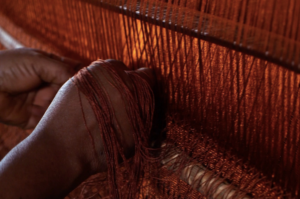

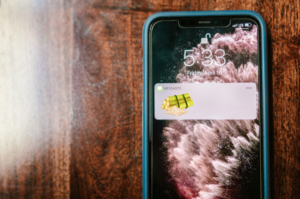
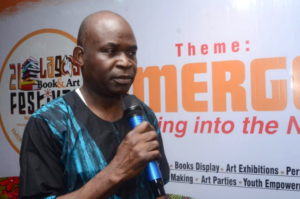
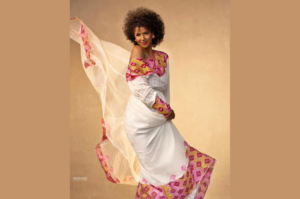
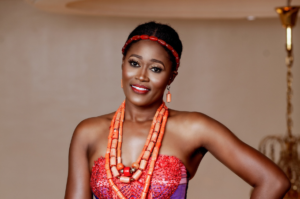

COMMENTS -
Reader Interactions